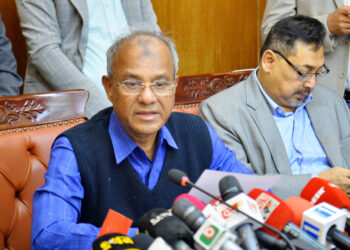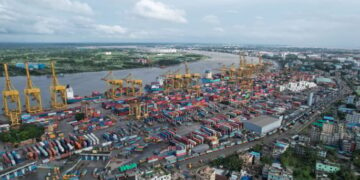The IMF has requested Bangladesh to raise an extra amount of BDT 57,000 crores in revenue through taxes so it can reach fiscal objectives and enable it to disburse its loan in a timely manner. The finance department and the central bank are under stress to undertake reforms needed and increase tax collection efficacy so revisions can be met as IMF conditions require. Not reaching revenue objectives can cause delay in disbursing IMF loan’s next installment, jeopardizing financial stability of the nation.
IMF Conditions and Commitments of Bangladesh
Bangladesh borrowed $4.7 billion from the IMF in 2023 to stabilize its economy, increase its foreign exchange reserve, and increase its financial system’s resilience. On condition of accepting the loan, its government agreed on structural reforms to improve taxation collection, reduce subsidies, and increase financial governance.
According to the IMF authorities, Bangladesh’s tax-GDP ratio remains among the lowest in South Asia at around 9%. The IMF recommended putting in place reforms to increase tax administration, digitalize tax collection, and increase the base of taxation to enable revenue mobilization on a sustainable basis at an early date. Government Strategy to Meet Tax Revenue Target To achieve an extra BDT 57,000 crore in revenue through taxation, the government is weighing several proposals, including:
- Enhancing the Tax Base: The Tax Authority will increase the number of taxpayers and corporate taxpayers brought into the system by targeting sectors with historically poor compliance records.
- Rise in VAT Collection: The government may redesign VAT levies and improve collection mechanisms, particularly in service and retail sectors.
- Reducing Tax Evading: Strengthening anti-tax evasion measures by more effective enforcement, auditing, and penalization of evaders.
- Launch of New Taxes: Discussions are still on about levying new taxes on high-end goods, digital services, and high-income taxpayers.
“We are resolved to meet IMF conditions without overburdening the low and middle classes with taxation measures,” a senior official in the finance ministry stated.
Potential Economic Consequences
Economists and finance specialists warned against defaulting on IMF’s revenue target from taxation as this would have disastrous consequences, including:
- Delayed Disbursement of Loan: Bangladesh runs the risk of tardy receipt of the second tranche of IMF loan, thereby creating liquidity shortage and strain on foreign exchange reserve.
- Increased Risks of Inflation: The extra impositions can add to inflation pressure, increasing business and household costs
- Lower Investor Confidence: Uncertainties about meeting IMF conditions may result in foreign direct investment (FDI) declining and affecting Bangladesh’s credit rating.
- Public Backlash: TAX reforms with higher prices of commodity and service items are infuriating to the public and may cause public agitations.
Read more: Tourism in Cox bazar Expected to Fetch Tk 700 Crores for Eid
Expert Opinions and Recommendations
Economists also proposed that the government tread a balanced approach towards meeting IMF conditions so as not to upset social stability and economic growth. Executive Director of Policy Research Institute, Dr. Ahsan H. Mansur, added, “The government needs to prioritize broadening the tax base rather than putting more burden on existing taxpayers.
With proper digitalization and enforcement, it can improve compliance with no added burden to people.” Meanwhile, business associations urged the government to ensure new measures taken in terms of taxation should not be harmful to the development of the private sector. The government should prioritize ending tax evasion and taxing more transparently instead of raising tax rates, Federation of Bangladesh Chambers of Commerce and Industry (FBCCI) President Md. Jashim Uddin declared.
Conclusion
With Bangladesh navigating its IMF terms financial challenge, its government faces its biggest challenge in balancing fiscal responsibility with economic sustainability. With mounting pressure of raising BDT 57,000 crore as new revenues, policymakers will have to act with urgency and delicacy to become compliant without losing business confidence and public trust. The coming few months will prove if Bangladesh can become compliant with its fiscal goals as well as with future financial stability.
Share via:


















